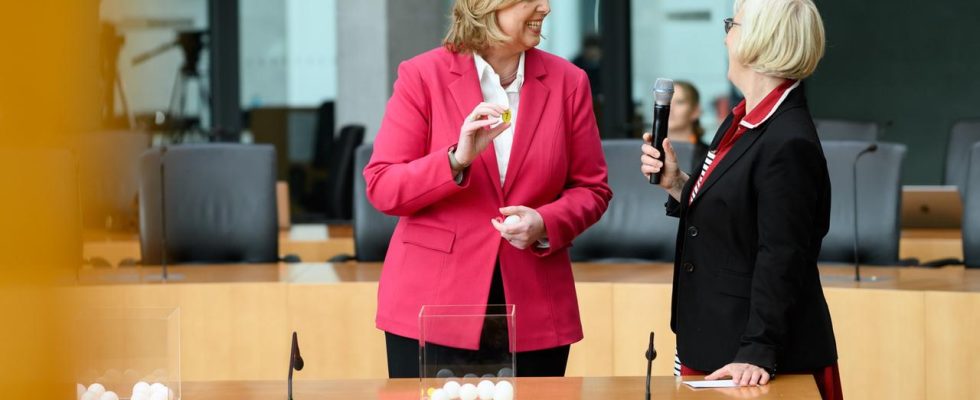160 citizens are to make proposals to the Bundestag on food policy. With the citizens’ council, new forms of participation are also to be tried out. The participants were drawn at random in Berlin.
In the Bundestag, the members of the first citizens’ council have been drawn by lot. Parliament President Bärbel Bas determined the 160 participants in a “citizen lottery”. They should make proposals to the Bundestag by the end of February next year on the subject of “Nutrition in transition: Between private affairs and state tasks”.
Citizens should advise, but MPs should decide
In the coalition agreement, the traffic light factions had decided to try out new forms of citizen dialogue for political participation without giving up the principle of representation. Bas said the citizens’ councils create space for encounters of different kinds, where everyone can contribute personal perspectives and experiences. “This diversity of opinion enriches democracy and, above all, gives those we always call the ‘silent majority’ a voice.”
However, the councils should not replace the parliamentary debate: “In the end, the MPs decide and are responsible for which recommendations are implemented,” said Bas. The results of the citizens’ council are not binding for the members of parliament.
From animal welfare to taxes on food
In terms of content, the council members should deal with the question of where the state should become active in food policy and where not. For example, it should be about labels for environmental compatibility and animal welfare standards, but also about the taxation of food or food waste.
The committee is scheduled to start work on September 29th. Three weekend meetings and six digital sessions are planned. On February 29, 2024, the council is to submit a “citizens’ report” to the Bundestag.
composition should represent society
According to the Bundestag, the 160 members were selected in a multi-stage process, which is intended to ensure a balanced composition.
Initially, 20,000 people were drawn and invited. 2,200 of them reported back and wanted to take part. From them, an algorithm then determined 1,000 possible compositions of the citizens’ council, in which attention was paid to the distribution by age, gender, regional origin, town size and educational background. 70 percent of the people who reported back were academics – they are now represented with 26 percent in the citizens’ council.
Since the topic of the Council is nutrition, the proportion of vegetarians and vegans also played a role – according to the organizers, their proportion is ten and 2.5 percent, respectively.
Criticize the Union and AfD, the left warns
Criticism came from Union and AfD. “There is no need for an alibi parliament thrown together by lot,” said CDU politician Gitta Connemann. Götz Frömming from the AfD said that there have long been citizens’ councils, namely the federal and state parliaments. “We demand the introduction of nationwide referendums instead of this pseudo-democratic simulation of democracy.”
Jan Korte, leader of the parliamentary group of the left, who had decided on the nutrition council together with the traffic light groups, confirmed the introduction: Citizens’ councils could help “awaken interest in politics and democracy and enable participation”. However, the recommendations should not then be lost in coalition disputes.
Many councils are called citizen councils
The term citizen council is not clearly defined. Two years ago, for example, there was already the Climate Citizens’ Council, which was not organized by the Bundestag but by an association and was only under the patronage of the then Parliament President Wolfgang Schäuble. In the past week, a nationwide citizens’ council for education also presented proposals for a fairer education policy.

